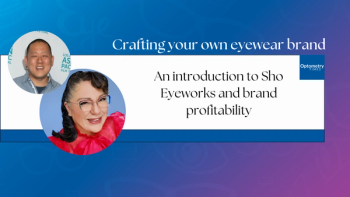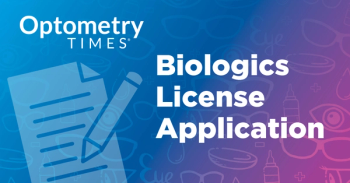
AAOpt 2024: Key takeaways from the 2024 diabetes update
According to A. Paul Chous, MA, OD, FAAO, optometrists have an important opportunity to educate patients in their chairs about diabetes.
A. Paul Chous, MA, OD, FAAO, provides some takeaways from the "Diabetes Update: What's New in 2024" presentation given at the American Academy of Optometry meeting.
Video transcript:
Editor's note: The below transcript has been lightly edited for clarity.
Emily Kaiser Maharjan:
Do any pearls or advice for optometrists who are maybe starting to see an uptick in patients with diabetes in their chairs?
A. Paul Chous, MA, OD, FAAO:
Yeah, so the first thing, it's such an important question. It's really the foundational question, right, how do we prevent people from getting diabetes? I've only got a single slide on this, but essentially, there was a big analysis conducted looking at delaying the diagnosis of type 2 diabetes by even 4 years. That results in about a 35% risk reduction in dying from a major adverse cardiovascular event. So even though diabetes prevention, long term, most people with pre diabetes, people that are at high risk for getting type 2 diabetes, eventually they get diabetes. But the bottom line is, if you can delay the onset, you can improve people's longevity and hopefully their quality of life. The other pearl is just to ask patients about what medications they're on. And I know this is a common experience in eye care, ophthalmology and optometry. You know, what meds are you on, they tell you metformin or one of these other agents. And so patients, a lot of times, don't even reveal or know that they've been diagnosed with diabetes. So you want to ask specifically about medications. If possible, look at the EMR and look at their blood glucose values and the like. I really think that optometry specifically, generally spends more time with our patients, educating them, so I think we can play a pivotal role as diabetes educators, and can help our patients with newly diagnosed diabetes do a better job, because that's when tight blood sugar control makes the most difference, is that if you get it early on. If you wait for the horse to be out of the barn, as I say all the time, therapies aimed at lowering blood sugar and even blood pressure are not as beneficial. So you want to get these folks on with a program that's going to lower the risk for retinopathy early on, but also to the extent we can prevent type 2 diabetes in the first place. It's going to have huge public health impacts over the coming decades.
Kaiser Maharjan:
Absolutely. And if you could boil it down to a few key takeaways that you really want to drive home to optometrists, what would they be?
Chous:
Optometrists already served as diabetes educators par excellence, and I want us to continue down that road. I think the more we know about diabetes treatments, the better we are able to counsel our patients in an appropriate way. Gotta remember always to communicate with the primary care physicians. They're overwhelmed with diabetes care, they're seeing so many patients, and I'm an advocate for – there's been talk from the Academy of Family Practice to have non-endocrinologists, non-internal medicine healthcare providers, get a diabetes certification credential that would allow us to educate but also perhaps prescribed medications for patients with newly diagnosed diabetes. And I think this is something that optometrists would be very good at, very adept at incorporating this, perhaps into our daily practice. We need all hands on deck because of the epidemic of diabetes and prediabetes.
Kaiser Maharjan:
Yeah, that would be very, very interesting if that came to fruition.
Chous:
Yes.
Kaiser Maharjan:
Thank you again, Dr Chous, for sharing this update on diabetes for 2024. It's been a very fascinating conversation, and I really appreciate you taking the time.
Chous:
Emily, it's my pleasure, as always. Be well.
Newsletter
Want more insights like this? Subscribe to Optometry Times and get clinical pearls and practice tips delivered straight to your inbox.








































